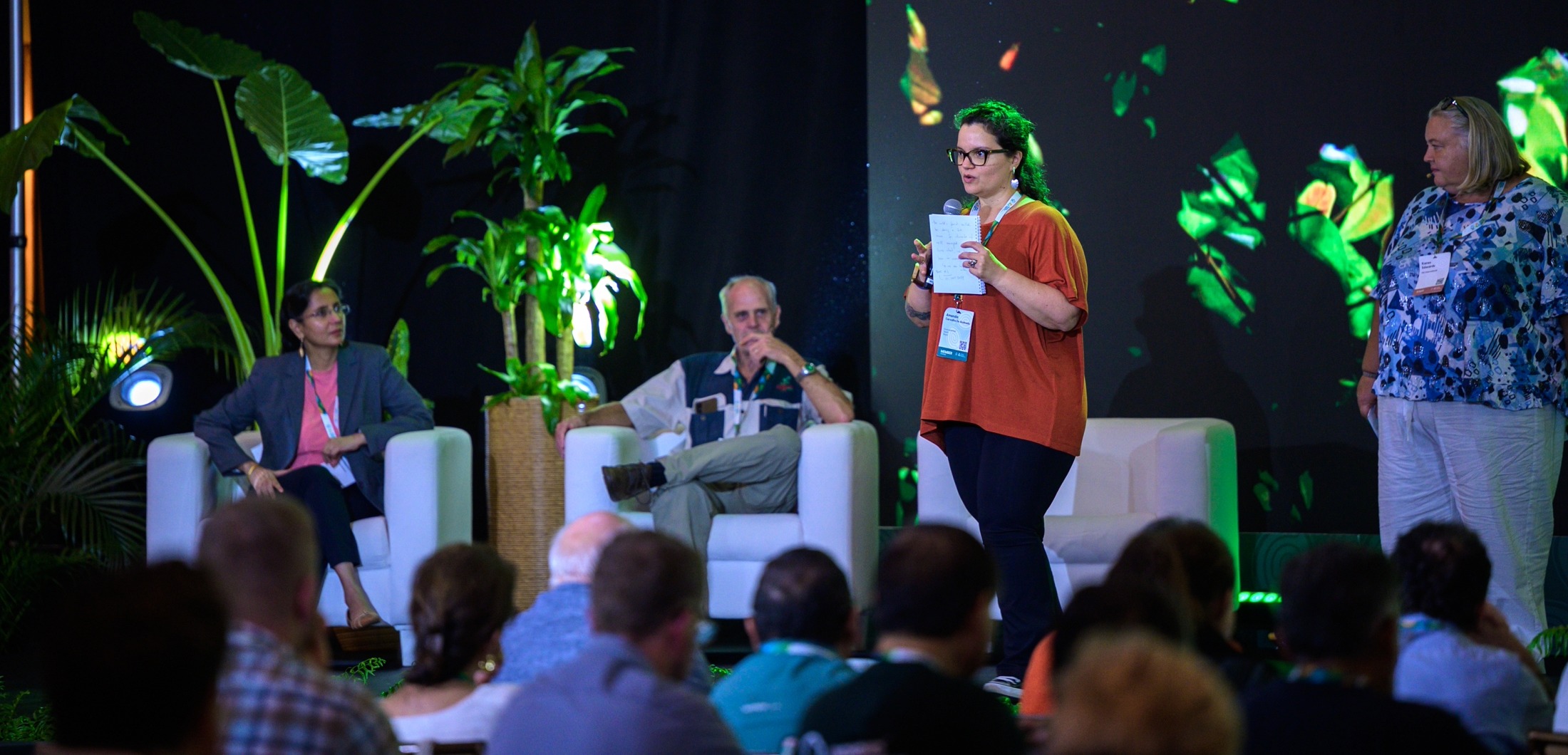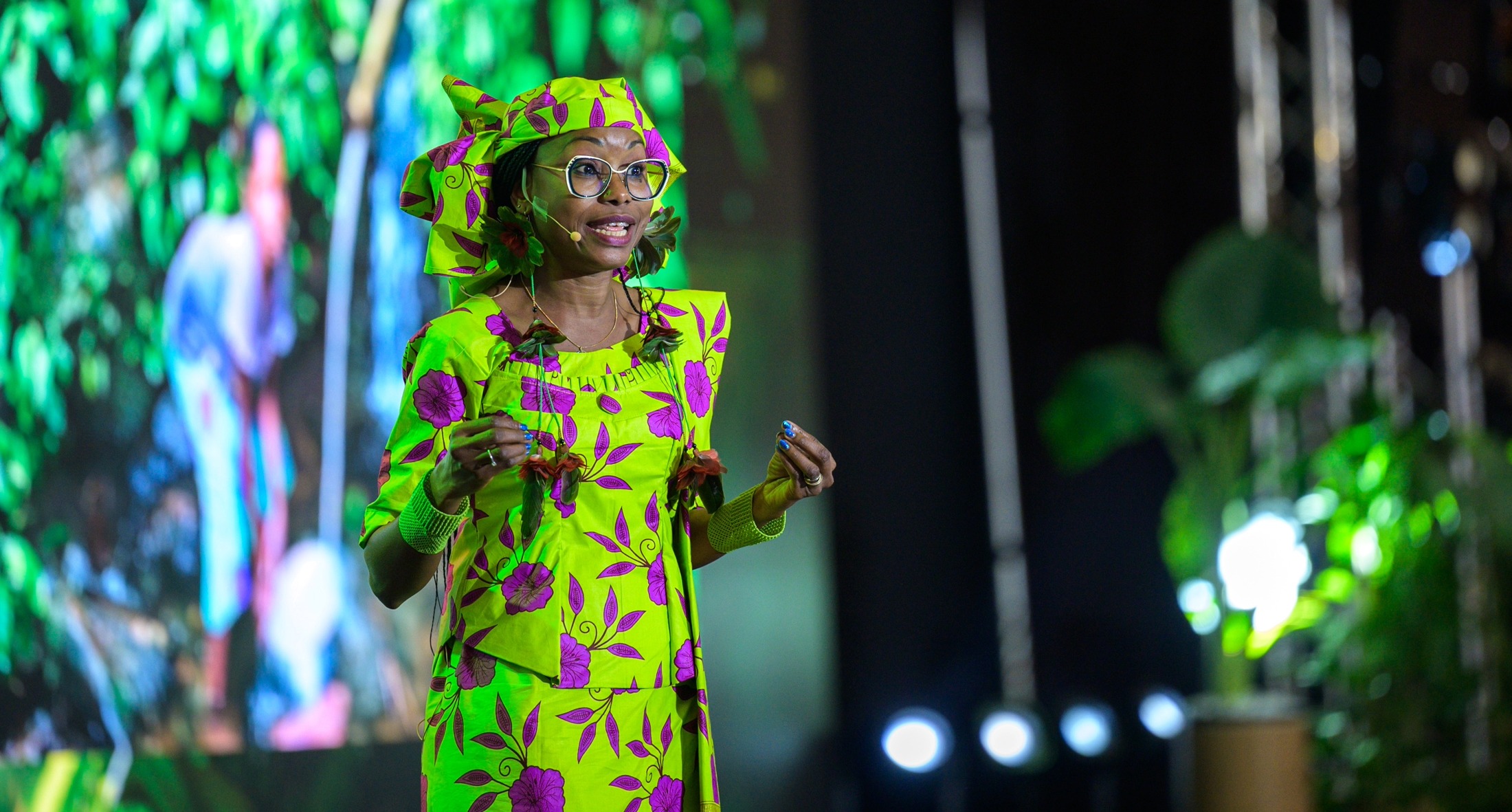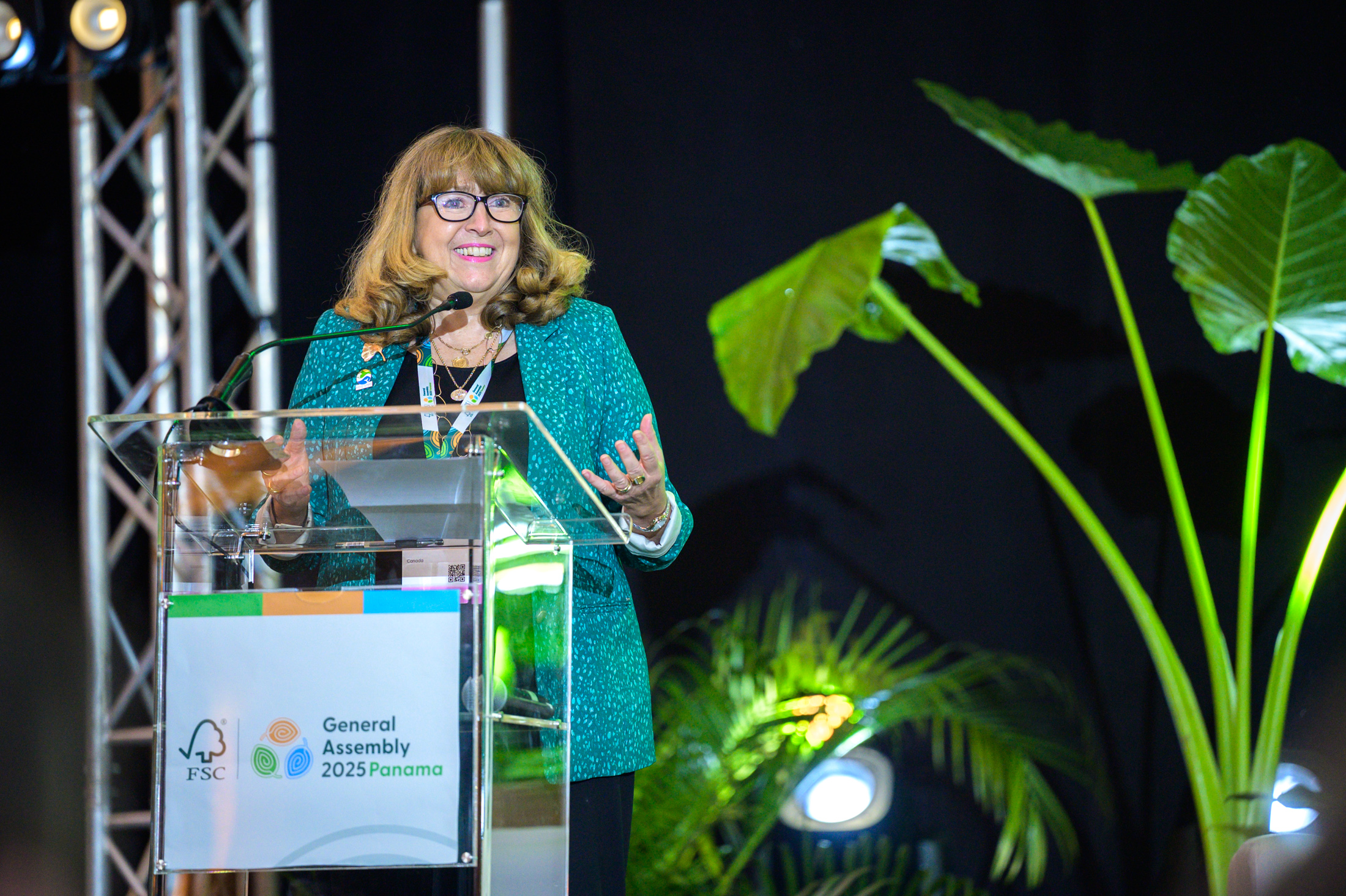
Stuart Valintine, Chairperson of the FSC International Board of Directors opened the discussion by emphasizing that the organization’s mission to promote responsible forest management remains as relevant today as ever, but future strategy must strengthen under-addressed aspects of its purpose. He highlighted the need to maintain a consistent global standard while adapting it to diverse local contexts through greater contextualization and regionalization.
Next, Amanda Carvalho de Andrade, Vice-chairperson of the FSC International Board of Directors and Chair of the Strategic Planning Committee, expressed the need to streamline implementation of the global strategy by setting clearer priorities and focusing on FSC’s core strengths.
“We know how to do responsible forest management; this is our strength. And we have one of the most amazing platforms for dialogue out there that is multicultural, that aims to be ever more inclusive, and that results in getting this diversity of people into a single room, having a conversation,” Amanda said.
She invited members to provide input early in the strategy development to ensure the next strategy delivers greater impact.
Subhra Bhattacharjee, Director General of FSC International, gave an overview of the ongoing process to develop the next Global Strategy. She underscored the need to focus on the areas where FSC can lead and to partner in areas where there are synergies.
Global collaboration for forests and life
Astrid Schomaker, Executive Secretary of the Secretariat of the Convention on Biological Diversity (CBD), highlighted the importance of forests for biodiversity: “When we take action for forests, we take actions for so much more – for protection, food security, health, for water availability, water quality, climate protection, and much, much more.”
She called on FSC and its partners to help accelerate implementation of the Global Biodiversity Framework by expanding certification’s reach, especially in the Global South, while ensuring it remains effective, accessible, equitable, and inclusive of Indigenous Peoples and local communities.
To break up the dynamic, the audience answered the question by submitting words online: what comes to mind when you think of the true value of forests? Answers included biodiversity, life, health, nature, ecosystem services, peace, protection, and home.
Considerations for the next strategy
Three inspiring speakers from economic, environmental, and social perspectives explored how FSC can further refine and focus its solutions to respond more effectively to today’s urgent and complex global challenges.
Christina Niemelä Ström, Global Head of Sustainability for IKEA Supply at the Inter IKEA Group spoke about the importance of forests – emphasizing forests as living ecosystems essential to both planetary and business resilience. She highlighted IKEA’s commitment to FSC certification and how this has evolved over time so now almost all IKEA wood products are FSC certified or recycled.
“FSC is daring to do something that others don’t dare: to balance complexities and yet find the solutions and the common ground. That spirit is what we need to continue as we evolve,” Christina said.
Joeri Zwerts, Assistant Professor at Utrecht University, shared research showing that FSC-certified tropical forests host significantly more wildlife — particularly large and endangered species — than non-certified forests, revealing that FSC practices effectively reduce hunting pressure and protect biodiversity.
He brought the discussion to everyday choices, noting how the products consumers buy can help support wildlife. “We have about 220 million hectares of tropical forest in Africa,” Joeri shared. “If you take out all these elephants, and over a few generations you lose even 7%, that’s 2.9 gigatons of carbon. How much is that? That is about the same as the annual emissions of the most populous country in the world, India.”

From a social perspective, Hindou Oumarou Ibrahim, Mbororo Indigenous leader and Chair of the FSC Indigenous Foundation, explained how for Indigenous Peoples, forests are central to identity, culture, and survival. They provide food, medicine, shelter, and deep ecological knowledge that surpasses monetary wealth. She said that responsible forest management means recognizing and supporting Indigenous Peoples as stewards of the land. Involving them in decisions, securing land tenure, and integrating traditional knowledge are essential for forest resilience.
Hindou concluded with a powerful reflection about connection to the forest and the role of FSC: “We are not the owners of the forests, we are its children, and children take care of what gives them life. This is why we need FSC, as the Panamanian Minister of Environment said so beautifully yesterday. The Forest Stewardship Council is absolutely irreplaceable. The world simply cannot go without it.”
How to participate in the strategy process
Finally, Anakarina Pérez Oropeza, Head of Strategy at FSC International, outlined how members and stakeholders can engage with and influence the next Global Strategy process, through other spaces at the General Assembly and in the months ahead.


